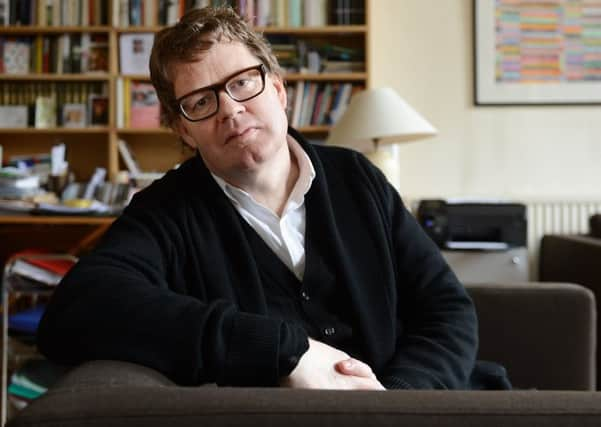Book review: The Road to Grantchester, by James Runcie


Certainly the Rev Sidney Chambers is a long way from John Rebus. Nevertheless, the appearance of cosiness is deceptive. These are serious novels, novels in which murder and other crimes aren’t offered as mere entertainment. Runcie has a light touch and a sense of humour, but he is also a moralist. Indeed, he has said that the six Grantchester novels “are intended as a moral history of post-war Britain.”
As the title indicates, this new novel is a prequel, telling how Chambers became a priest and the vicar of Grantchester. The first half will surprise many who have enjoyed the previous novels and the TV series. There is nothing cosy about it at all. The young Sidney Chambers is a captain in the Scots Guards, engaged in the Italian campaign and in the terrible battle of Monte Cassino. Some have regarded the Italian campaign as a sideshow. It was anything but that. The fighting was ferocious and terrible. Churchill’s “soft belly of the Axis” was far from soft. Runcie re-creates the fighting in all its horror, while recognising moments of tenderness, the importance of friendship and the paradoxical challenge which war offers to men with religious faith – not that the young Sidney Chambers has that yet. This war section is good enough to merit comparison with the Italian (and Korean) scenes in Eric Linklater’s great novel, The Dark of Summer.
Advertisement
Hide AdAdvertisement
Hide AdJames Runcie is the son of the late Archbishop of Canterbury, Robert Runcie, who himself served in the Scots Guards in the war (though in Normandy and Germany unlike Chambers) and, like Chambers, he was decorated, winning the Military Cross for bravery in action. James Runcie isn’t telling his father’s story, and I have no idea whether the young Chambers resembles the future Archbishop, but the novel wouldn’t be what it is if the author’s father had been like Chambers’ one, a cricket-loving doctor. On his return from the war, Chambers is depressed, ill at ease, uncertain of his future. His closest friend, Robert, was killed at Monte Cassino in the confused and confusing heat of battle. Chambers feels survivor’s guilt, perhaps even more than that. He is close to Robert’s family, but doesn’t know how to deal with the parents, closer still to Robert’s younger sister Amanda – a delightful and wholly convincing character. Yet as he becomes more and more certain that he has been called to the priesthood, he risks becoming estranged from her. The scenes between Chambers and Amanda are written with a delicate intelligence; Runcie knows that people may communicate with those of whom they are fond even while one is baffled by the other.
The immediate post-war scenes are very well done indeed, convincing as a black-and-white in which Sidney Chambers might best have been played by the young Dirk Bogarde. Before Grantchester he serves as a curate in war-damaged Coventry, a suitable posting for a war-damaged young man. There he learns that, for his parishioners, “his presence is only a step away from having the police or the doctor round: the professions that only turn up when something is wrong.” In time he will come to the point of confronting his own darkest fear, may never utterly subdue it; yet the novel ends on a note of hope.
It’s unusual these days to read a novel which is not only about ethical questions but one where the hero is a good man, admirable, if not always likeable. Goodness is much harder to convey than evil, but Runcie brings it off without sentimentalising his hero. He also shows that, while a priest should be fully engaged in the world around him, he always stands a little apart. Runcie once compared his priest-detective to Chesterton’s Father Brown. But Father Brown was never more than an idea, though a very good one; Sidney Chambers is as convincing as any flesh-and-blood creature, not just an idea of a parson. This is because Runcie has thoroughly imagined him and in this coming-of-age novel he shows us how and why he became what he is. - Allan Massie
The Road to Grantchester, by James Runcie, Bloomsbury, 327pp, £14.99